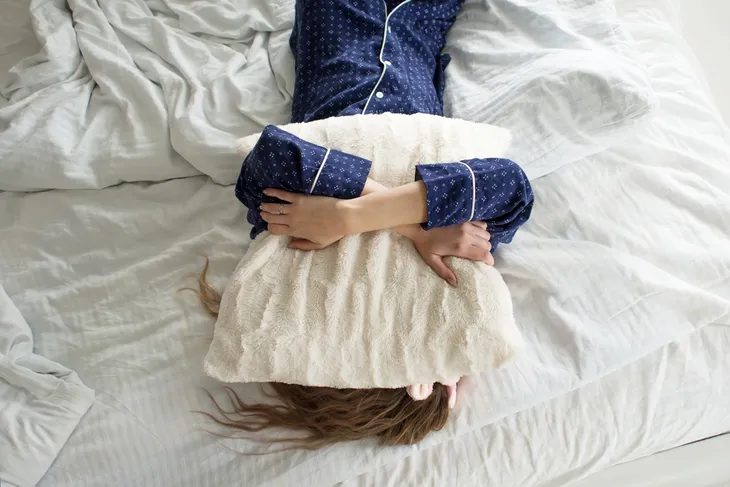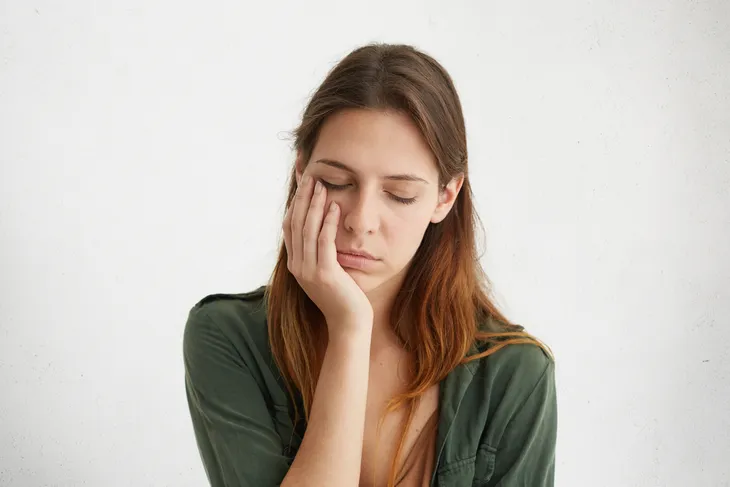A woman’s hormones impact a whole variety of factors—from mood to energy and from skin to hair. That’s why unexpected health issues, even if they seem somewhat trivial, can often signal that your hormones are out of whack.
The six signs of hormone havoc in women are…
Hair Loss
According to the American Hair Loss Association, the hormone dihydrotestosterone (DHT), a by product of testosterone (a male hormone) can wreak havoc on your hair follicles.
In women, hair loss, thinning, loss of texture, and fullness are all signs of excess DHT, or androgen hormones, in your body. Low progesterone and estrogen will often start with hair loss or thinning at the crown of the head.
Low Libido
The Mayo Clinic points to a lack of sex drive as a prime indicator of hormonal imbalance in women. Oftentimes, decreased libido will start with trouble sleeping (insomnia), which causes hormone levels to plummet.
Women can experience lagging libido due to hormonal changes during pregnancy, just after delivering a baby (while breastfeeding), during the transition into menopause, and with extreme periods of stress and fatigue.
Mood
WebMD claims that estrogen levels are closely related to mood disruptions, including depression, irritability, anxiety, crying, and roller coaster mood swings, in women. Low estrogen levels can even result in postpartum depression in new moms.
Estrogen specifically impacts the brain’s emotional center. An estrogen imbalance can modify endorphins (or “feel good”) brain chemicals. Uneven estrogen levels can also alter serotonin receptors and even can lead to nerve damage.
Weight
Sudden and unexplained weight loss or gain in women is another predictor of hormonal imbalance. Dr. Lena Edwards, the Director of the Balance Health and Wellness Center in Lexington, Kentucky, says hormones can be responsible for appetite, cravings, metabolism, and weight distribution.
For instance, the sudden development of heavy breasts can signify an estrogen imbalance, whereas the sudden emergence of a belly bulge can indicate the body isn’t responding properly to the hormone that regulates glucose in the blood.
Sleep Quality
A woman’s sleep can be impacted by stress and environment. However, the National Sleep Foundation claims that several other factors, including pregnancy, menopause, and menstruation, can also eat into sleepy time.
Every woman, between puberty and menopause, has hormones that fluctuate monthly — that is the menstrual cycle. Generally, after menopause, progesterone and estrogen just take a deep dive and don’t fluctuate anymore. For instance, decreased progesterone can cause insomnia, while estrogen can cause troubled sleep plagued with night sweats and sudden temperature changes.
Fatigue
Drastic changes in energy levels shouldn’t be brushed off. In fact, research from the Mayo Clinic College of Medicine in Rochester, Minnesota, claims that hormones (and thyroid issues) can result in an normally energetic woman suddenly being unable to get out of bed.
If you suddenly feel totally zapped of energy for no reason, ask your doctor to check your hormone levels. It could be the result of fluctuations in your adrenal hormones, progesterone, estrogen, blood glucose levels, or thyroid hormones.









